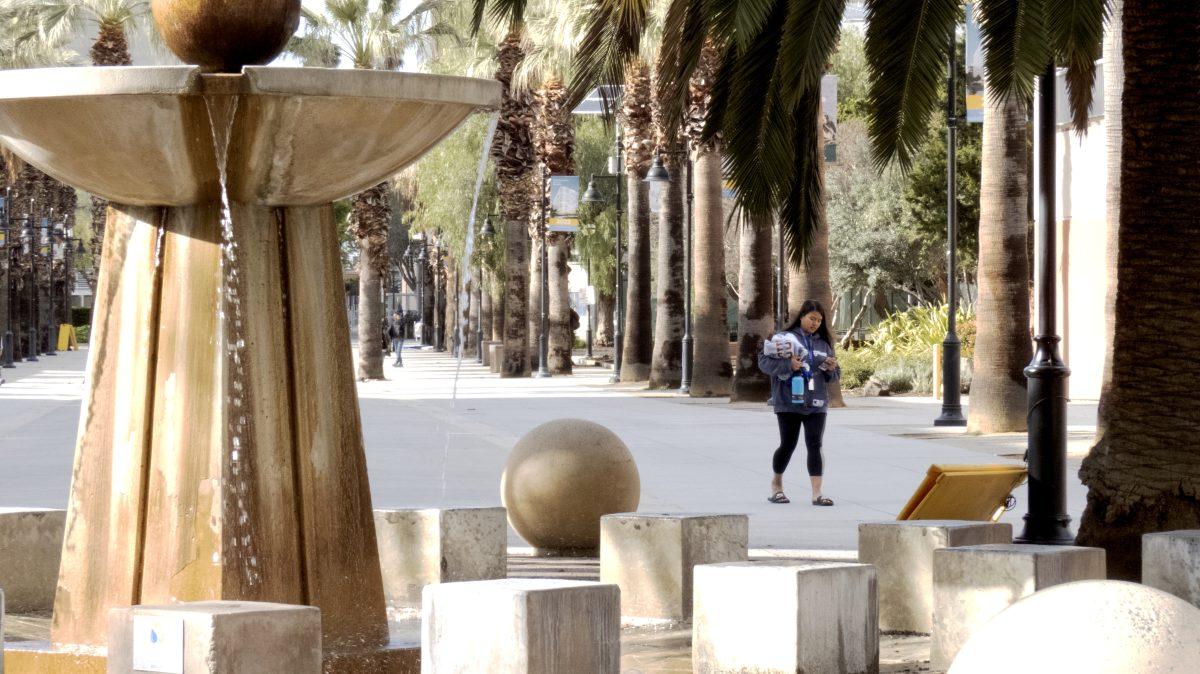During a livestream interview on CalMatters college journalism network Thursday, California State University Chancellor Timothy White explained how he plans to approach changes in funding, employment and academics caused by the coronavirus pandemic.
Student employees
White said students employed by the CSU are either working remotely or receiving paid leave.
Student employees who are not working will receive payments for the weeks they missed up until April 5, White said.
But student employees under subcontractors have been getting laid off or had hours cut without any financial aid from the CSUs.
Students working under Chartwells Higher Education Dining Services on campus were laid off without compensation, according to previous Spartan Daily reporting.
White said the CSU system cannot use state funds to pay those students under an auxiliary company or a company established by a parent company to conduct a particular line of business.
He added that the CSU Office of General Counsel is working to get resources out of the federal Coronavirus Aid, Relief, and Economic Security Act by going directly to the auxiliary companies and assisting them in supporting student employees.
The CARES Act would provide grants or loans for these auxiliaries depending on the amount of employees they have, White said.
“The devil is going to be in the details,” he said.
Credit/No Credit and online classes
White said the CSU system is giving greater flexibility for universities to decide whether they want to provide a Credit/No Credit option like San Jose State did.
“I’m pleased about that because I don’t want these artificial barriers to hurt students in the short term, or in the long term,” White said.
Despite the dearth of hands-on activities during the online transition of CSU classes, White urged students and faculty members to adapt.
“When you use technology, sometimes then with the checkbox it doesn’t take you 30 minutes to have a discussion, you only take three or four or five minutes to have that discussion,” he said.
He also said that any engagement, whether that’s setting up more contact hours or interacting with students virtually, goes a long way.
However, he acknowledged that some classes can’t easily make that transition.
“If you are an astrophysics major and you’re in your senior capstone class and the project is to build a rocket and shoot it off out in the desert up to 10,000 feet – that’s pretty difficult to do virtually,” White said.
But he added that students can still design rockets digitally.
“I think we’re going to see an absolute proliferation, and much of this I think will be done by our students, in creating simulated experiences that are so real,” White said.
Budget drain
White said no matter the drastic changes to CSU’s budget because of the COVID-19 pandemic, he does not intend to
raise tuition.
He’s banking on state appropriation funds coming to the CSU.
“If the state is unable to do that, then it totally changes the conversation,” he said. “We have to reopen that whole issue around tuition, going forward, or we have to get much smaller.”
“This unmitigated disaster will change all our assumptions for the budget next year,” White said. “It would be malpractice for us to spend our reserves today with all of the uncertainties facing us today.”
He mentioned that the possibility of losing enrollment may play a huge factor in any budget changes, and that people have to realize the universities still have employees, benefits and mortgage payments.
“We are dipping into our reserves,” White said. “It isn’t even out of the question that we may be challenged by our general fund support during the remaining two or three months of this fiscal year.”
An uncertain future
White said that CSU campuses must be prepared for the possibility of the pandemic continuing during fall semester.
“It would be foolish not to be considering in the fall, that we’re going to continue being in a largely virtual state, it’d be better to plan in that direction,” he said. “I’m planning to be highly dependent on the virtual experience, if not totally dependent on it.”
For students graduating who are scared to enter an economy that may very well be in a tailspin when they graduate, White said to try and persevere and don’t lose sight of that college degree.
“Plan on a little bit of pain, but don’t give up on the goals,” White said.
He added that no matter what the state of the economy is, no one can take away the value of a college degree.
“There is no entitlement, there is no free lunch here, we’re all going to be hurt in some degree financially here,” White said regarding the future college graduates face.






































